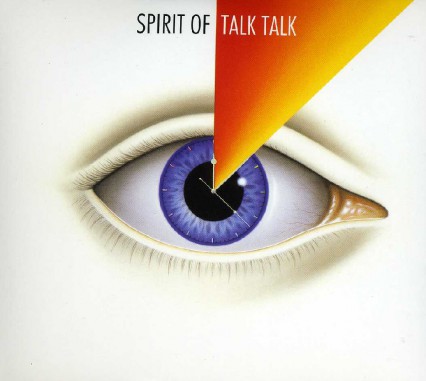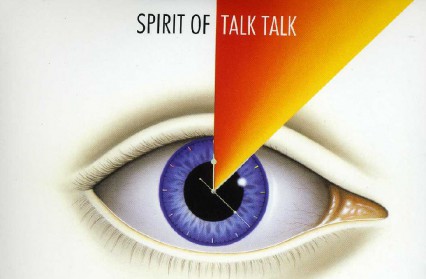Gary Raymond looks back at the genius of Mark Hollis and Talk Talk in his review of the tribute album, Spirit of Talk Talk.

So one story goes, Mark Hollis, the central force of Talk Talk, once stormed out of a recording session in frustration because he could not find the right type of silence he was looking for. The story is no doubt apocryphal (Hollis is a recluse and myths about him abound) but it will give footing for anybody coming to Talk Talk for the first time: none of the surprises is by accident.
It has been twenty years since the last Talk Talk album, Laughing Stock (1991), and it seems just as long since the significance of this band was publicly widely discussed. A tribute album does not always go very far in changing such circumstances, but this one marks the opening of a period of retrospectives and books in which many might have their attention returned to a band whose career went from global pop domination to experimental recluses in the space of a decade.
Hollis’ purest statement, and one of the most important albums ever made, is Spirit of Eden (1988), the title of which is nodded to in the overall banner of this retrospective. Obviously, the tracks from the Spirit of Eden are well represented here. Opening with a confident rendition of ‘Wealth’ by Lone Wolf and then following quickly with Zero 7 covering ‘The Colour of Spring’ and S.Carey doing ‘I Believe in You’, the scene is set for a long and intense guided tour through Talk Talk’s back catalogue. The covers do something that Hollis, perhaps, was never able to do, and that is let rip. Hollis’ tight, neurotic, obsessive creative nature is everything that Talk Talk is about, and no artist here tries to undermine that. Often these tribute albums can be tedious, idea-less trudges. But rarely here is there a lack of passion and privilege, and also there is rarely a sign of really being able to escape the magnetic, chasmic wiriness of Hollis’ vision for the original. Duncan Sheik’s laidback version of ‘Life’s What You Make It’ takes a pop record to a very contemporary live lounge acoustic vibe, and yet the tensions of Hollis are still there fighting, frowning through the Americana veneer, making its true character known. Indeed one thing that the artists covering the big pop hits of Talk Talk’s career manage to do is reiterate what great songs they were, even as we remember them coated in the thick veils of eighties synths. The TenFiveSixty’s club version of ‘It’s My Life’ is heart-thumpingly good.
Something else that often happens with tribute albums is the dismantlement of the original, the ungracious attempt by the covering artist to rebuild a song from its most basic components. Again the greatness of Hollis’ original work seems to have stunted any such attempt. When it does happen, with Linton Kwesi Johnson’s spoken-word rendition of ‘Inheritance’ it just serves to bring to the fore the influence Talk Talk had on bands like Massive Attack. Thomas Feiner, Fyfe Dangerfield and Robbie Wilson have gone for the epic treatment of one of Hollis’ most poignant and dramatic songs, ‘The Rainbow’, with heavy drums and knife-edge string sections, something between Wagner and the Olympic opening ceremony at its most BBC-friendly. But still, the loneliness of the original manages to make itself known. Throughout Spirit of Talk Talk, the dominating taste is of the genius of Mark Hollis.
The fullness of the renditions – nobody has popped into the studio as a favour and chucked down a busk here – and the extensiveness of the double-disc, makes for a long listen, but remarkably, it works as an album, each track unified by the underlying style of Hollis, the melancholy and the perfectionism imbued into the life of each composition. And the line-up is, perhaps, predictably interesting: King Creosote, Richard Reed Parry (from Arcade Fire) Sean Carey (of Bon Iver), Joan as Policewoman, White Lies, the Acorn, Jason Lytle (from Grandaddy), the Lovetones and others. The upcoming book that examines the importance of Talk Talk also gathers written tributes from Robert Plant, Guy Garvey, and many other heavyweights. The balance of contributors seems must have been an interesting discussion.
Elbow, newly anointed anthem-laureates for Her Majesty’s biggest social events, would perhaps not have sat well with these artists each of whom has always sounded more hungry than Elbow has sounded in recent years. In actual fact, whereas Elbow – who have always cited Talk Talk as a major influence – now are firmly seated in the mainstream slow death, moving toward what Talk Talk got out of, what this collection of tributes suggests is that in another era Talk Talk may have been an act more widely respected, in the vein of Pink Floyd, perhaps. The music definitely suggests creative parity with the giants of prog and even has a sensuousness the Floyd always lacked. By the end of the eighties when Hollis was writing Spirit of Eden and Laughing Stock, it was the audiences who had gotten small, and taken their musical expectations with them, returning to the punk-vibe of grunge, kicking back against stadium pop (which Talk Talk had themselves left behind) just as the Sex Pistols stuck a finger up to Pink Floyd. The tragedy, perhaps, is that as that was happening Mark Hollis was locked in a studio compressing ‘Set the Controls for the Heart of the Sun’ with ‘Great Gig in the Sky’, bringing in the spirit of Coleman Hawkins, Van Morrison, Muddy Waters, Bukka White and Brian Eno, and making Spirit of Eden. The great thing is that in this tremendous tribute album, Talk Talk’s admirers are finally attempting to draw the wider public to that truth: that Mark Hollis is one of the most important composers of modern music, and his work, particularly on Spirit of Eden, is a culmination of the journey of those inflected notes that make the hexatonic scale as infectious as it has been, from Robert Johnson to Elvis, to Bob Dylan, to Pink Floyd and on.
Hollis was always a producer of music, a studio man, and if nothing else the richness of this tribute calls out for a new album from the main man. He has not recorded an album since his 1998 solo record (another masterpiece). But a recent contribution to the soundtrack of an American TV drama series teases out ideas of a return to the studio. Perhaps this album, along with the sumptuously produced book that comes out this month, will turn the eyes of the music world onto Hollis once again and ask for him to join us in the fight against the death of ingenuity in music. But Hollis has long since given up paying attention to what the public want. Maybe he is still trying to perfect the silence in his head.
The Spirit of Talk Talk tribute album is available now.
Gary Raymond is a regular contributor to Wales Arts Review.



 Enjoyed this article? Support our writers directly by buying them a coffee and clicking this link.
Enjoyed this article? Support our writers directly by buying them a coffee and clicking this link.







